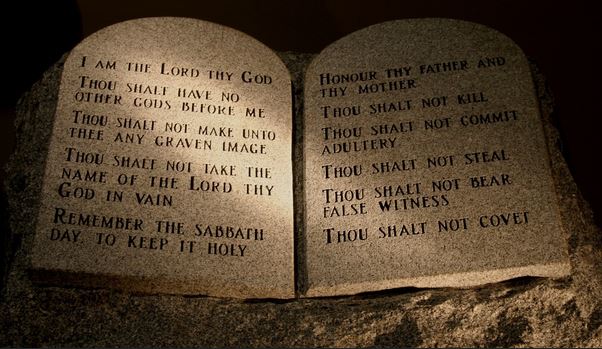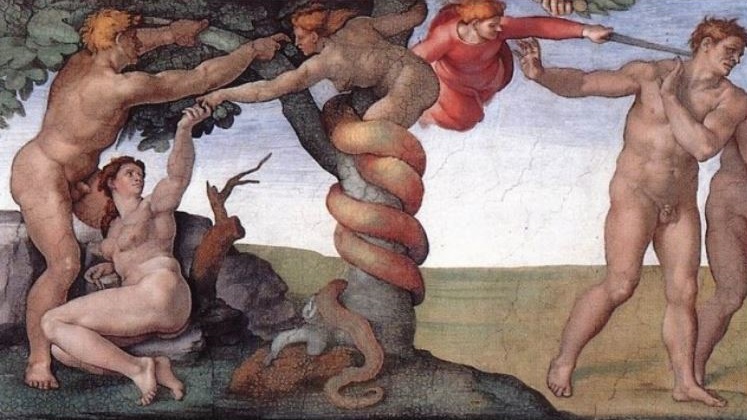Exodus 20:1-3, 7-8, 12-17
In those days, God delivered all these commandments:
“I, the Lord am your God,
who brought you out of the land of Egypt, that place of slavery.
You shall not have other gods besides me.
“You shall not take the name of the Lord, your God, in vain.
For the Lord will not leave unpunished
the one who takes his name in vain.
“Remember to keep holy the sabbath day.
Honor your father and your mother,
that you may have a long life in the land
which the Lord, your God, is giving you.
You shall not kill.
You shall not commit adultery.
You shall not steal.
You shall not bear false witness against your neighbor.
You shall not covet your neighbor’s house.
You shall not covet your neighbor’s wife,
nor his male or female slave, nor his ox or ass,
nor anything else that belongs to him.”

an examination of conscience
1. I am the Lord your God: you shall not have strange Gods before me.
Do I accord more importance to creation — to people and things? Do I idolize entertainers or politicians, idealizing and placing them on a pedestal? Am I my own god — grandiose, arrogant, and do as I will? Do I subscribe to a self-serving moral relativism– that what is right depends on the situation and on what benefits me? Do I practice humility by serving others? Do I ask for forgiveness when I have wronged another?
2. You shall not take the name of the Lord your God in vain.
Have my words denied, devalued, or insulted God? Do I use His holy name as a profanity, or as an emotional outburst?
3. Remember to keep holy the Lord’s Day.
Do I avoid, when possible, work that impedes worship to God, joy for the Lord’s Day, and proper relaxation of mind and body? Do I look for ways to spend time with family or in service on Sunday? Do I say “Thank You” for all that He’s given me — my body, mind, work, family, friends, and for life itself?
4. Honor your father and your mother.
Do I show my parents due respect? Do I seek to maintain good communication with my parents where possible? Do I criticize them for lacking skills I think they should have? Do I blame them for my own flaws and problems? Do I honor that which they gave birth to by treating my body and mind with respect, and refraining from impairing and corrupting myself with drugs, indolence, and pornography?
5. You shall not kill.
Have I killed the body, no matter how small, of another? Have I injured another’s body, spirit and emotions with my actions and words?
6. You shall not commit adultery.
Have I stayed true to my marital vows? If unmarried, have I honored another’s marital exclusivity? Have I respected the physical and sexual dignity of others and of myself, and of the institution of marriage?
7. You shall not steal.
Have I taken or wasted the possessions, resources or time that belong to another? Have I dis-respected God’s creation by being wasteful and profligate?
8. You shall not bear false witness against your neighbor.
Have I told lies or embellished stories at the expense of another?
9. You shall not covet your neighbor’s spouse.
Have I honored my spouse with my full affection and exclusive love? Have I, instead, longed for or lusted after another, including fantasy figures?
10. You shall not covet your neighbor’s goods.
Am I content with what I have, or do I compare myself to others, and feel envious, resentful, or entitled to what others have?

May the peace and love of Jesus Christ our Lord be with you!
~E






